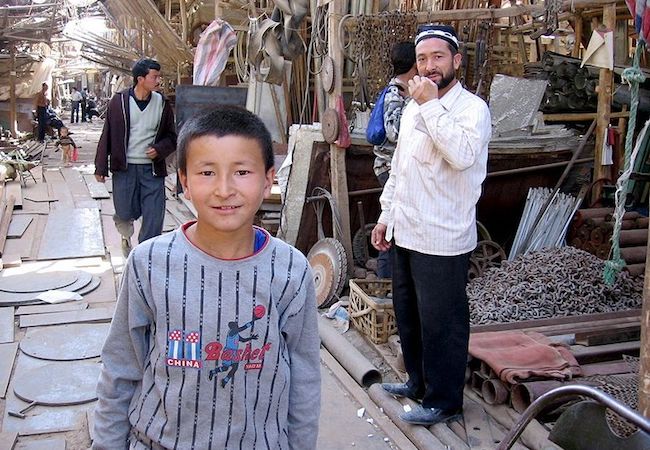
By Jeff King
Recent weeks have seen unprecedented international action against China for its egregious violations of human rights, particularly its oppression of religious minorities. Perhaps most notably, the U.S. issued a tranche of sanctions against Chinese officials complicit in the internment of Uyghur Muslims. The use of human rights sanctioning authorities to target these officials was an unprecedented move and was received with great indignation by the Chinese government, which responded by issuing largely toothless sanctions against a number of top American government officials.
The U.S. also moved to ban some products made by slaves in Xinjiang Province, where China’s Uyghur population is concentrated and often exploited for labor. Specifically, U.S. Customs and Border Protection issued an order which banned the import of products from three Chinese companies known to use forced labor in their production lines. This move was clearly justified, even if it was a relatively small response to China’s brazen and large-scale use of forced labor.
Forced labor is just one of ways China turns a profit from its oppression of religious communities and, while one of the biggest targets, the Uyghur community is far from the only group facing persecution. Forced organ harvesting is a major issue as well, and one that seems to be a growing problem as China markets its services to international patients desperate for a transplant. Tapping into a database it populates with the biological information of thousands of ethnic and religious minorities, Chinese medical institutions offer on-demand organ transplants to international patients who receive an organ from a “donor” murdered for the purpose. China denies this practice, but takes in some $1 billion from it every year.
Uyghurs, Falun Gong practitioners, protestant Christians, Catholics, and others face varying degrees of suppression from the government. A common thread in their experiences, though, is the use of technology to monitor and evaluate their everyday activities. Probably the most extreme example of this surveillance state is found in the Xinjiang and in the internment camps housing somewhere between one and three million Uyghurs.
Officially styled vocational schools by the Chinese government, these camps more closely resemble the concentration camps of Nazi Germany than the high school woodworking shops that the official description might suggest. Guard towers and barbwire fences are just the visual trappings of this network of prisons where, survivors report, indoctrination, beatings, and torture are regular features of daily life.
The camps have continued to operate in defiance of international disapproval and slow little sign of changing any time soon despite China’s alternating claims that the camps don’t exist and assurances that the camps are being closed down.
In December, 2019 China announced that all inmate “trainees” had graduated from the camps—an announcement that was met with understandable skepticism from the international community. The months since have proved this claim false, but if there is a grain of truth in China’s announcement it lies in the many tens of thousands of Uyghurs who have since been transferred from the camps into factories—a fate possibly worse than the camps and one which adds more urgency to the international community’s response to China’s human rights violations.
The world had a responsibility to act when China was holding its religious minorities in concentration camps, but that onus has only increased as China expands its use of slave labor. Nearly every major brand that sources materials from China has been linked to factories that use slave labor. From the fabrics used by Abercrombie, Calvin Klein, and The North Face to the electronics used by Apple, BMW, and General Motors, the products of the Chinese slave trade are finding their ways into closets, wardrobes, and garages all around the world.
The average consumer recoils at the idea of using products produced by slaves. It is morally repugnant to benefit from the abuse of others, and it is up to the governments of the world to ban the import of slave-produced goods out of China. That China shouldn’t be allowed to benefit from slave labor is obvious, but just as obvious is the fact that the rest of the world shouldn’t either.
Banning the sale of cheap, slave-produced goods may hurt tax revenues and it might upset corporations, but to do anything else is unconscionable.
Jeff King is President of International Christian Concern, a D.C.-based human rights group fighting for religious freedom all around the world. Through a combination of on the ground relief work, original research, and government advocacy, ICC works to provide holistic relief to those suffering on account of their faith.




